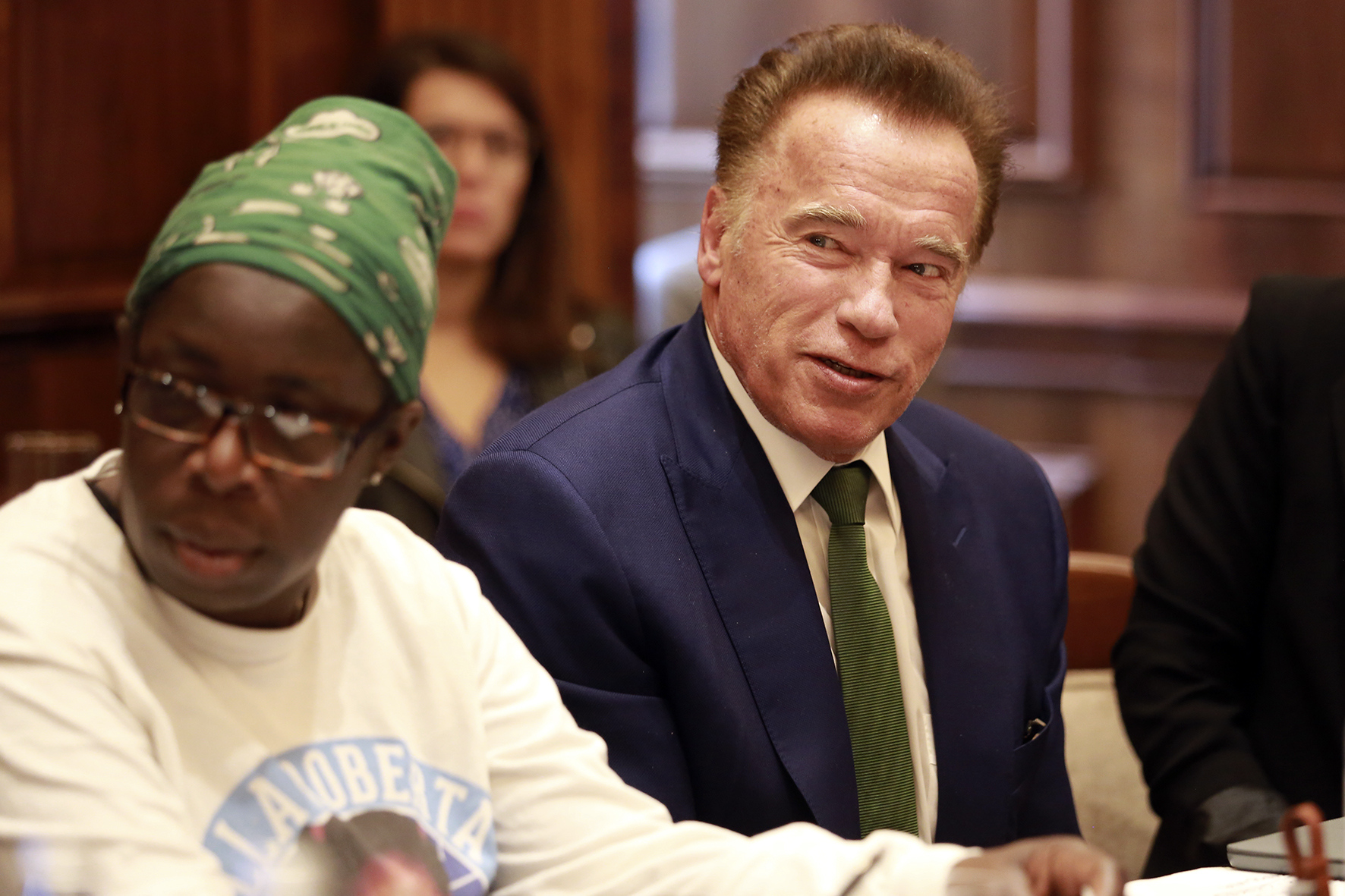Former California Gov. Arnold Schwarzenegger convened a Talanoa Dialogue-style event in his native country of Austria, bringing together legislators, activists and entrepreneurs to share stories and best practices around combating the serious dangers of air pollution.
The event, titled “Pollution: Making the Invisible Visible,” was held May 29 by the USC Schwarzenegger Institute during the R20 Austrian World Summit in Vienna.
Schwarzenegger started things off by discussing how leaders must communicate the right message about climate change, highlighting the immediate health impacts people face from pollution.
He lamented that when he became involved in this issue as governor, every speech he heard about climate change focused on the impact on the world that rising sea levels and melting icebergs would have down the line.
“The human brain is not wired for reacting to what’s happening 10, 20, 50 years from now,” Schwarzenegger said. “It’s all about now. People’s main concern is to go to work, to provide for my family and to stay alive. Well, you’re not going to stay alive with the pollution we’re creating. So why don’t we talk about that? The environmental movement deserves to be made the top priority by governments, but it does not get the attention it deserves because it gets miscommunicated.”
Schwarzenegger asserted that talking about how pollution affects the environment is softening the blow.
“We need to be very direct so people will change their behavior,” Schwarzenegger said. “We have to let people know that pollution will kill you.”
Schwarzenegger previously led a Talanoa Dialogue in Los Angeles last December. Talanoa is a Pacific Islander tradition of telling stories to build consensus and make decisions for the collective good.
Among participants providing their personal stories and recommendations for best practices were Beth Gardiner, author of the book Choked: Life and Breath in the Age of Air Pollution; Rosamund Adoo-Kissi-Debrah, founder of the Ella Roberta Foundation; Karolina Skog, a member of the Swedish Parliament; Romain Lacombe, founder and CEO of Plume Labs; United States Ambassador to Austria Trevor Traina; and former California legislators Kevin De Leon and Fran Pavley, who now work with the Schwarzenegger Institute.
Julia Pyper, a journalist and co-host of the Political Climate Podcast, served as moderator.
Adoo-Kissi-Debrah put a face on the health effects of pollution by telling the story of her daughter, Ella, who died in 2013 from asthma. She was born in London in 2004 without any issues with asthma and was a healthy child until 2010, when she developed what sounded like a smoker’s cough.
Her 30 trips to the hospital over the next three years corresponded with spikes in air pollution, and the night before she died was the highest spike of air pollution ever in the area. Black carbon was found in her body.
“When children die from this we don’t see them, and that’s why we call it in my house the invisible killer,” Adoo-Kissi-Debrah said. “The fact I’m here today is making the invisible visible.”
The World Health Organization indicates that 7 million people a year die today from pollution, 100,000 of them in the United States. The WHO identifies air pollution as the “silent killer” because it is strongly linked to many causes of death, such as strokes, heart attacks, different kinds of cancer, dementia and premature births.
“If anything else was killing that number of people, it would be on the front page every day,” Gardiner said. “Yet, this is something we don’t really talk about, and I think that’s the real challenge.”
Her book provides stories, similar to Ella’s, to make the invisible visible.
Skog spoke about how next year Sweden will become the first country in the world to require the labeling of gas pumps with information about the climate impact of fuel. An NGO called the Swedish Association of Green Motorists lobbied for the label, which the Schwarzenegger Institute would like to see adopted in California and throughout the United States.
De Leon pointed out that California probably has the most far-reaching climate policy of any sub-national region on Earth, and yet the state still has eight of the 10 most polluted cities in America.
Pavley, who crafted the California environmental policy championed by Schwarzenegger, explained that she grew up in Los Angeles in the 1960s, when pollution was so bad that it actually was visible.
According to Pavley, what led then-Gov. Ronald Reagan to create the Air Resources Board in California was the impact mothers had on him in expressing their concerns about what the air was doing to the health of their children.
That’s the sort of impact the attendees of the Talanoa Dialogue hope that exposing the prevalence of air pollution and its consequences on people’s health can make to encourage climate action.
(Text copyright Matthew Kredell, photos copyright Martin Hesz)

